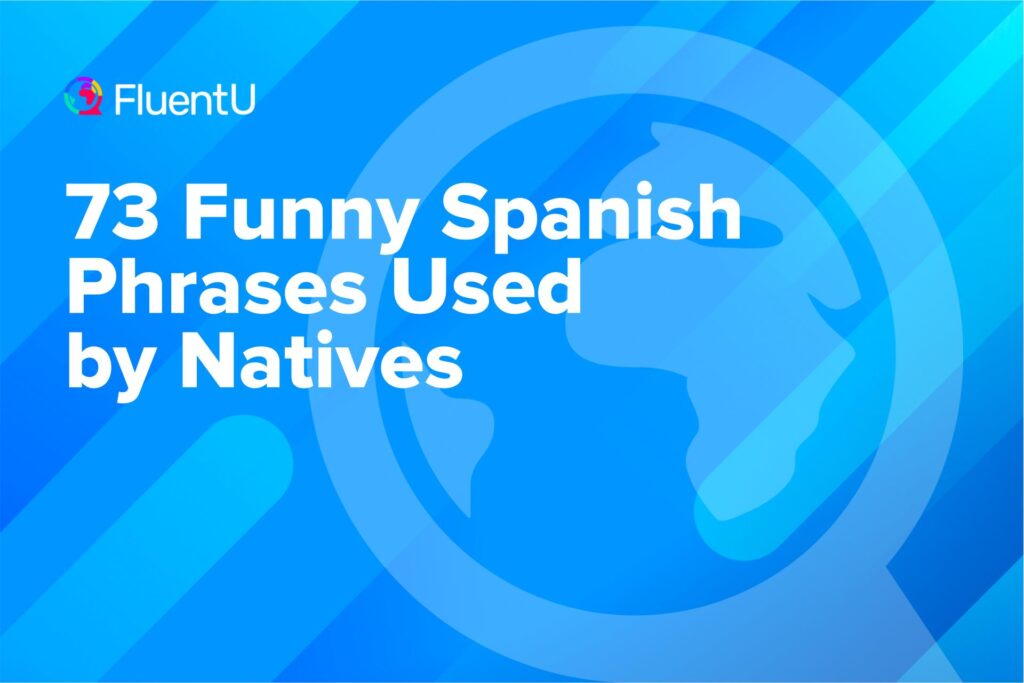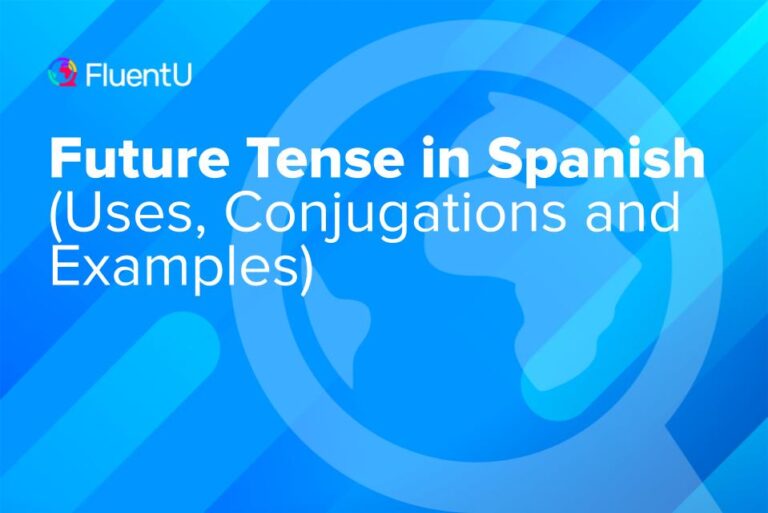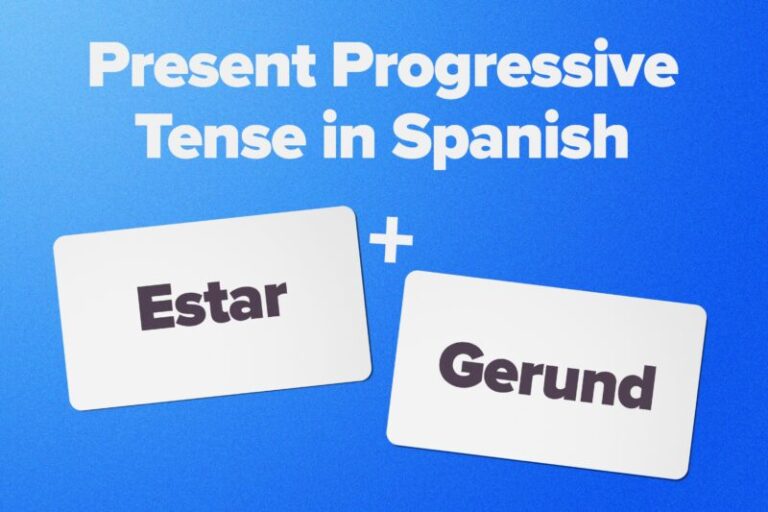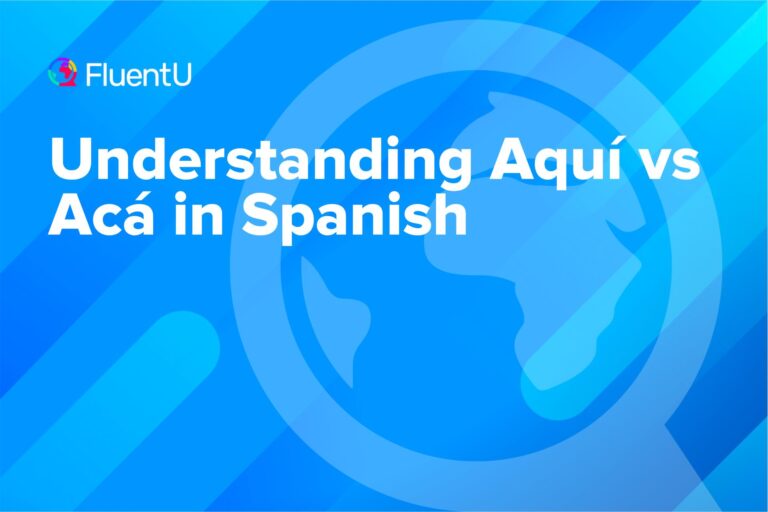Contents
- Funny Spanish Phrases
- 1. Ponerse las pilas
- 2. Comer moscas
- 3. Papar moscas
- 4. Buena onda
- 5. Me pica el bagre
- 6. Ojo
- 7. Corto de luces
- 8. Hablar del rey de Roma
- 9. El mismo perro con diferente collar
- 10. Más se perdió en Cuba
- 11. Ser pan comido
- 12. Tener mala leche
- 13. Estar como una cabra
- 14. Me importa un pimiento
- 15. Estar en las nubes
- 16. Estar en las últimas
- 17. No hay tutía
- 18. Estar en las manos de Morfeo
- 19. Irse por las ramas
- 20. Tirar la casa por la ventana
- 21. Ir al grano
- 22. Ser más chulo que un ocho
- 23. Creerse la última Coca-Cola en el desierto
- 24. Como el que oye llover
- Funny Spanish Sayings
- 25. Aunque la mona se vista de seda, mona se queda
- 26. A pan de quince días, hambre de tres semanas
- 27. Lavar cerdos con jabón es perder tiempo y jabón
- 28. No hay burro calvo ni calabaza con pelo
- 29. Con paciencia y con maña, un elefante se comió una araña
- 30. Cría fama y échate a dormir
- 31. Quien fue a Sevilla, perdió su silla
- 32. Ojos que no ven, corazón que no siente
- 33. Las palabras se las lleva el viento
- 34. No hay mal que dure cien años dure
- 35. Dame pan y dime tonto
- Funny Spanish Words
- Fun Spanish Words to Pronounce
- And One More Thing…
73 Funny Spanish Phrases Used by Natives

Spanish has some funny words and phrases that aren’t at all uncommon to native speakers but may well surprise non-natives.
So in this post, we will cover most common 73 funny Spanish words, phrases and sayings so you can use them yourself.
Download: This blog post is available as a convenient and portable PDF that you can take anywhere. Click here to get a copy. (Download)
Funny Spanish Phrases
1. Ponerse las pilas
Literal translation: To put in your batteries
English equivalent: To look alive
I heard this often when I was in high school. The teacher would walk by, see me gazing aimlessly into space and say “Ponte las pilas!”
This phrase is used in both Latin America and Spain. However, I found that it’s more commonly used in Argentina and Mexico.
Ponte pilas (note the missing las) is used in Colombia, Ecuador and Peru.
Yo sé que es temprano, pero ponte las pilas. (I know that it’s early, but look alive.)
2. Comer moscas
Literal translation: To eat flies
English equivalent: To speak aimlessly
We all have a friend that’ll start a story about going to the grocery store, but somehow manage to turn it into an hour long autobiography.
A person who comer moscas is a person who often goes off on tangents or speaks aimlessly.
This phrase is also used in both Latin America and Spain.
Sara siempre come moscas. (Sara always goes off on a tangent.)
3. Papar moscas
Literal translation: To eat/gulp down flies
English equivalent: To daydream
Every single time I hear this phrase, I imagine Homer Simpson dreaming about a delicious donut.
A daydreaming person can sometimes look quite similar to Homer, with their mouth open, and their thoughts far from where they actually are.
And that is the moment when a fly will fly directly down your throat. Suddenly, you awake from your daydream and snap back to reality.
¿Estás papando moscas? (Are you daydreaming?)
4. Buena onda
Literal translation: Good wave
English equivalent: Good vibes
This phrase is usually used when talking about a person that has a great aura or energy.
Buena onda is used more often in Spain than it is in Latin America, but it’s not uncommon to hear it there as well.
Me da buena onda. (He’s giving me good vibes.)
5. Me pica el bagre
Literal translation: The catfish is biting me
English equivalent: I am very hungry
You know that feeling when you’re so hungry that your stomach starts to cramp or there’s a pinching feeling?
In Spanish, we say that feeling comes from a catfish biting your stomach. Of course, this isn’t literal, but that’s how it feels!
This phrase is most common in South America, especially Argentina.
Me olvidé de desayunar, me pica el bagre. (I forgot to eat breakfast, I’m so hungry.)
6. Ojo
Literal translation: Eye
English equivalent: Watch yourself, I’m watching you
When I lived in Spain, we had a woman come to our home to help my mom take care of the apartment.
Whenever I was doing something naughty, she would pull down the skin beneath her eye and say, “Ojo, Devyn, ojo.”
This almost always stopped me in my tracks, since I knew she was watching.
¡Ojo! Viene un coche. (Watch out! There’s a car coming.)
7. Corto de luces
Literal translation: Short of lights
English equivalent: Not the brightest bulb
In English we say things like, “the lights are on, but nobody’s home” or “not the brightest bulb” to say someone might not be very smart.
This phrase is the Spanish equivalent to say someone is ditsy or slow.
You’ll hear this phrase more often on the streets of Mexico than you will on the streets of Spain.
Soy corto de luces, olvidé mis llaves. (I’m not the brightest bulb, I forgot my keys.)
8. Hablar del rey de Roma
Literal translation: To speak of the king of Rome
English equivalent: To speak of the devil
Isn’t it amazing how as soon as you start talking about someone they manage to walk into the room?
That’s what this phrase refers to!
¡Rafael! Hablando del rey de Roma, justo hablábamos de ti. (Rafael! Speak of the devil, we were just talking about you.)
9. El mismo perro con diferente collar
Literal translation: The same dog with a different collar
English equivalent: People don’t change
This phrase means that people don’t change or that a situation doesn’t change.
You’ll hear this phrase often when elections come around. A new person is put into office, but es el mismo perro.
This phrase is used a lot in Latin America, which is ironic because things are always changing down there.
Los gentes tiene esperanzas, pero el presidente es el mismo perro con diferente collar. (The people are hopeful, but the president hasn’t changed.)
10. Más se perdió en Cuba
Literal translation: More was lost in Cuba
English equivalent: It could be worse
Looking at Cuba and their political climate over the last one hundred years, it’s clear that they’ve had it rough.
It’s easy to see the reality of how minor a situation is when you compare it to what Cuba has been through.
So maybe next time my young daughter comes to me wailing over a dropped toy I’ll just say, “más se perdió en Cuba.”
Se te cayó tu juguete? Más se perdió en Cuba. (You dropped your toy? There are worse things.)
11. Ser pan comido
Literal translation: To be eaten bread
English equivalent: To be a piece of cake
If something is a piece of bread that was already eaten, that means there’s no further work that needs to be done.
In other words, something can be seen as easy as in it could’ve already been done.
In English, we’d call the same thing a piece of cake.
No estoy preocupada del examen, es pan comido. (I’m not worried about the exam, it’s a piece of cake.)
12. Tener mala leche
Literal translation: To have bad milk
English equivalent: To have bad luck
If you happen to open your fridge and grab the milk, only to find that it smells sour, I’d venture to say that you’d consider yourself unlucky.
And that’s exactly what this phrase means in Spanish! To have bad milk is to have bad luck.
Tenemos mala leche, llueve cada vacaciones. (We have bad luck, it rains every vacation.)
13. Estar como una cabra
Literal translation: To be like a goat
English equivalent: To be crazy
This phrase is extremely common in most, if not all, Spanish speaking countries.
Goats are known to be a bit temperamental or to do strange and crazy things. So if someone says you’re like a goat, they are saying you are crazy!
Estás como una cabra cuando estás enojado. (You are crazy when you’re mad.)
14. Me importa un pimiento
Literal translation: I care as much as a pepper
English equivalent: I don’t care at all
This phrase originates from the notion that peppers hold minimal value in comparison to other type of produce. It means that you have lack of interest in something. Other funny variants of this expression include “me importa un rábano” (I care as much as a radish) or “me importa un pepino” (I care as much as a cucumber).
Me importa un pimiento lo que elija la gente para la cena. (I don’t care what people choose for dinner.)
15. Estar en las nubes
Literal translation: To be in the clouds
English equivalent: To be daydreaming
When someone says they’re “en las nubes,” they’re admitting to being lost in thought or daydreaming!
This idiom paints a vivid picture of someone whose mind has drifted off into the clouds, far from reality.
Perdón, estaba en las nubes. ¿Qué decías? (Sorry, I was in the clouds. What were you saying?)
16. Estar en las últimas
Literal translation: To be on the last ones
English equivalent: To be on one’s last legs
When someone is “en las últimas,” it means they are on their deathbed. Make sure to use it carefully to avoid getting into awkward situations, though!
Me dijo que su abuela está en las últimas. (She told me her grandma is on her last legs.)
17. No hay tutía
Literal translation: There’s no remedy
English equivalent: It’s impossible
“No hay tutía” is a Spanish phrase used to express disbelief or refusal, similar to the English expression “No way, Jose.” This idiom playfully suggests that there’s no easy solution or favorable outcome.
¿Crees que podremos terminar este proyecto hoy?
(Do you think we can finish this project today?)
No hay tutía, eso tomará más tiempo.
( No way, Jose, that will take more time.)
18. Estar en las manos de Morfeo
Literal translation: to be in the hands of Morpheus
English equivalent: to be asleep
When someone is “Estar en las manos de Morfeo,” they are surrendering themselves to the realm of sleep, as Morfeo is the Greek god of dreams.
This poetic phrase beautifully captures the act of going to bed or falling asleep.
Después de un largo día de trabajo, finalmente estoy en las manos de Morfeo. (After a long day of work, I’m finally hitting the hay.)
19. Irse por las ramas
Literal translation: To go through the branches
English equivalent: To beat around the bush
When someone “se va por las ramas,” they are avoiding the main topic of conversation and instead indulging in irrelevant details.
Deja de irte por las ramas y dime lo que realmente quieres decir. (Stop beating around the bush and tell me what you really mean.)
20. Tirar la casa por la ventana
Literal translation: To throw the house out the window
English equivalent: To pull out all the stops
“Tirar la casa por la ventana” is an expressive Spanish phrase that means to go all out or to spare no expense in a celebration or endeavor.
Vamos a tirar la casa por la ventana en la fiesta de cumpleaños de Ana. (We’re going to pull out all the stops at Ana’s birthday party.)
21. Ir al grano
Literal translation: To go to the grain
English equivalent: To cut to the chase
When someone “Va al grano,” they are getting straight to the point or addressing the issue without unnecessary explanations.
Por favor, ve al grano. No tengo todo el día. (Please, cut to the chase. I don’t have all day.)
22. Ser más chulo que un ocho
Literal translation: To be cockier than an eight
English equivalent: To think to be God’s gift to the world
“Ser más chulo que un ocho” is a funny Spanish expression used to describe someone who is overly confident and thinks highly of themselves.
Pedro se cree más chulo que un ocho desde que consiguió un nuevo coche deportivo. (Pedro thinks he’s God’s gift to the world ever since he got a new sports car.)
23. Creerse la última Coca-Cola en el desierto
Literal translation: To think that you’re the last coke in the desert
English equivalent: To think you’re the bee’s knees
This phrase means that you think that you’re pretty darn cool or even God’s gift to humanity.
We have a lot of phrases that say basically the same thing. “you think you’re the bee’s knees,” “the cat’s pajamas” or “all that and a bag of chips” are just a few examples.
This phrase is used more often in Latin America than in Spain.
Pablo se cree la última coca-cola en el desierto. (Pablo thinks he’s the bee’s knees.)
24. Como el que oye llover
Literal translation: Like he who hears raining
English equivalent: Like water off a duck’s back
There is now a tendency in our world to ignore what people say, to pretend that it doesn’t affect us.
This phrase is a metaphor for those words that we try to let past us without being too affected.
Sus insultos son como el que oye llover. (Your insults are like water off a ducks back.)
And we’re halfway through! Some of these phrases might sound a bit strange at first, but with time (and practice) they’ll start to feel more natural.
The best way to really understand how these phrases are used is to hear them be used in context, and to do this I recommend listening to native speakers and noting how they incorporate these phrases naturally.
Even if you can’t have a conversation with a native speaker, you can still find ways to hear these phrases from your home, whether it’s listening to Spanish music, watching Spanish movies or reading Spanish books.
Learning programs such as FluentU are a great option to practice this as well.
FluentU takes authentic videos—like music videos, movie trailers, news and inspiring talks—and turns them into personalized language learning lessons.
You can try FluentU for free for 2 weeks. Check out the website or download the iOS app or Android app.
P.S. Click here to take advantage of our current sale! (Expires at the end of this month)

Funny Spanish Sayings
25. Aunque la mona se vista de seda, mona se queda
Literal translation: Even if the female monkey dresses in silk, she will remain a female monkey
English equivalent: You can’t put lipstick on a pig
This phrase points out that you can’t hide who you are. No matter what you do to change your personality or appearance for others, you’ll still be you.
La cirugía plástica es peligrosa, además, aunque la mona se vista de seda, mona se queda. (Plastic surgery is dangerous, plus, you’ll still be the same person.)
26. A pan de quince días, hambre de tres semanas
Literal translation: To a 15-day bread, a 3-week hunger
English equivalent: Beggars can’t be choosers
In Spain, we love exaggerating, especially within our humor.
So when we use this phrase, we are saying that even a fifteen day old bread won’t be too hard to chew when hungry.
The phrase suggests you just accept what you are given.
Pediste un favor, a pan de quince días, hambre de tres semanas. (You asked for a favor, beggars can’t be choosers.)
27. Lavar cerdos con jabón es perder tiempo y jabón
Literal translation: Washing pigs with soap is losing time and soap
English equivalent: Some things are a waste of time
Accept it, pigs are not clean. They smell really bad. If you try to wash a pig, there’s little effect your soap and scrubbing will have on the stench.
In other words, a pig bath is a waste of time.
This phrase means that not everything is worth your time and it’s okay to accept that and prioritize.
Lavar cerdos con jabón es perder tiempo y jabón, céntrese en lo que puede controlar. (Some things are a waste of time, focus on what you can control.)
28. No hay burro calvo ni calabaza con pelo
Literal translation: There isn’t any bald donkey nor any pumpkin with hair
English equivalent: Say what you really know and do what you can really do
Imagine a bald donkey or a pumpkin with hair… it wouldn’t make any sense!
The point is, talk about what you know, do what you can do, period. Just be yourself and don’t pretend to know everything.
Eres nuevo en este trabajo, no hay burro calvo ni calabaza con pelo. (You are new to this job, so say what you really know and do what you can really do.)
29. Con paciencia y con maña, un elefante se comió una araña
Literal translation: With patience and skill, an elephant ate a spider
English equivalent: Little strokes fell great oaks
Now this needs to be your mantra when learning Spanish, since it means that anybody can do anything when they put their mind to it and remain patient.
You do not need to be an elephant to do this, nor do you need to eat a spider, but you surely need to stock on some patience and persistence if you want to get there.
Es dificíl, pero con paciencia y con maña, un elefante se comió una araña. (It’s hard, but with patience and skill, you can do it.)
30. Cría fama y échate a dormir
Literal translation: Breed fame and crash out
English equivalent: Give a dog a bad name and hang him
We know it is very difficult to lose a bad reputation, even if it happens to be unjustified.
I think this saying is a great example of how differently Spaniards and Americans (or English-speaking people, for that matter) handle things.
Su reputación es importante para él, cría fama y échate a dormir. (His reputation is important to him, once you have a bad reputation, you can’t change it.)
31. Quien fue a Sevilla, perdió su silla
Literal translation: He who went to Seville lost his chair
English equivalent: If you leave your place, you lose it
This is one of those sayings that has that multipurpose flavor I love the most in Spanish language.
It can be applied not only to the fact that if you leave your seat unattended you can lose it, but also to any other situation when you leave something unattended and return to find someone has it.
If you feel brave enough to have a look (in Spanish!) at the origin of this saying, you can visit this webpage.
Robé tu asiento porquequien fue a Sevilla, perdió su silla. (I stole your seatv because if you leave your place, you lose it.)
32. Ojos que no ven, corazón que no siente
Literal translation: Eyes that don’t see, heart that doesn’t feel
English equivalent: Out of sight, out of mind
There is a lot of discussion among Spanish speakers about the real meaning of this saying, and I guess each of us uses it in a different way depending on where we grew up.
I prefer the translation “Out of sight, out of mind” because it seems to be closer with the literal Spanish meaning.
If you don’t see what is happening then you don’t think about it, so you don’t worry.
You can also interpret it as “Long absent, soon forgotten” as in you don’t see your ex anymore, so you forget them.
Estoy feliz que su exnovio se fue a la escuela porque ojos que no ven, corazón que no siente. (I’m happy her ex-boyfriend left for school because out of sight, out of mind.)
33. Las palabras se las lleva el viento
Literal translation: The wind blows words away
English equivalent: Actions speak louder than words
In the literal translation, this phrase essentially says that words are so weak that they could be blown over by the wind, so you should solidify your promises by acting on them.
Las palabras se las lleva el viento, quiero ver que te importa. (Actions speak louder than words, I want to see that you care.)
34. No hay mal que dure cien años dure
Literal translation: There is no evil that will last one hundred years
English equivalent: Nothing bad lasts forever
No matter how bad things turn out, it’s always a matter of time for things to get better, and this Spanish saying perfectly captures that idea:
No te preocupes por eso; no hay mal que dure cien años. (Don’t worry about that; nothing bad lasts forever.)
35. Dame pan y dime tonto
Literal translation: Give me bread and call me stupid
English equivalent: I get what I want
In the business world, really in any industry, there are people who are willing to do anything to get to the top.
Some people don’t care whose feet they step on or whose feelings they hurt, they’ll do everything they can to get what they want, so you might hear them say this.
This phrase is heard more commonly in South and Central America.
Dame pan y dime tonto, voy a ser el presidente. (I get what I want, I will be the president.)
Funny Spanish Words
| Spanish | English |
|---|---|
| Morondanga
| Nonsense |
| Bobalicón
| Scatterbrain |
| Tocapelotas
| Pain in the neck |
| Espantapájaros | Scarecrow |
| Cucurucho | Cone (ice cream cone) |
| Zampabollos | Glutton |
| Patatús | Faint (meaning a loss of consciousness) |
| Calamidad | Calamity |
| Fideo | Noodle |
| Petimetre | Dandy |
| Cachivache | Gizmo |
| Tarado | Donkey |
| Bocazas | Big mouth (referring to someone who talks too much) |
| Algarabía | Hubbub |
| Zopenco | Fool |
| Granuja | Rascal |
| Espeluznante | Appalling |
| Zurumbático | Whacky or eccentric |
| Chismoso | Gossipy |
| Fufurufo | Snobbish |
| Esperpento | Fright |
Fun Spanish Words to Pronounce
| Spanish | English |
|---|---|
| Entretenerse
| To entertain oneself, to pass time |
| Acariciar
| To stroke/caress |
| Escasez
| Shortage/scarcity |
| Heredero | Heir |
| Reñir | To scold, to argue |
| Hallazgo | Discovery/finding |
| Aburrimiento | Boredom |
| Purpurina | Glitter |
| Equilibrio | Balance |
| Llovizna | Drizzle |
| Relámpago | Lightning |
| Albahaca | Basil |
| Terciopelo | Velvet |
| Ciudadano / Ciudadana | Citizen |
| Murciélago | Bat (animal) |
Now you have 73 funny Spanish phrases to add to your own vocabulary, so give them a try!
Download: This blog post is available as a convenient and portable PDF that you can take anywhere. Click here to get a copy. (Download)
And One More Thing…
If you've made it this far that means you probably enjoy learning Spanish with engaging material and will then love FluentU.
Other sites use scripted content. FluentU uses a natural approach that helps you ease into the Spanish language and culture over time. You’ll learn Spanish as it’s actually spoken by real people.
FluentU has a wide variety of videos, as you can see here:

FluentU brings native videos within reach with interactive transcripts. You can tap on any word to look it up instantly. Every definition has examples that have been written to help you understand how the word is used. If you see an interesting word you don’t know, you can add it to a vocab list.

Review a complete interactive transcript under the Dialogue tab, and find words and phrases listed under Vocab.

Learn all the vocabulary in any video with FluentU’s robust learning engine. Swipe left or right to see more examples of the word you’re on.

The best part is that FluentU keeps track of the vocabulary that you’re learning, and gives you extra practice with difficult words. It'll even remind you when it’s time to review what you’ve learned. Every learner has a truly personalized experience, even if they’re learning with the same video.
Start using the FluentU website on your computer or tablet or, better yet, download the FluentU app from the iTunes or Google Play store. Click here to take advantage of our current sale! (Expires at the end of this month.)







